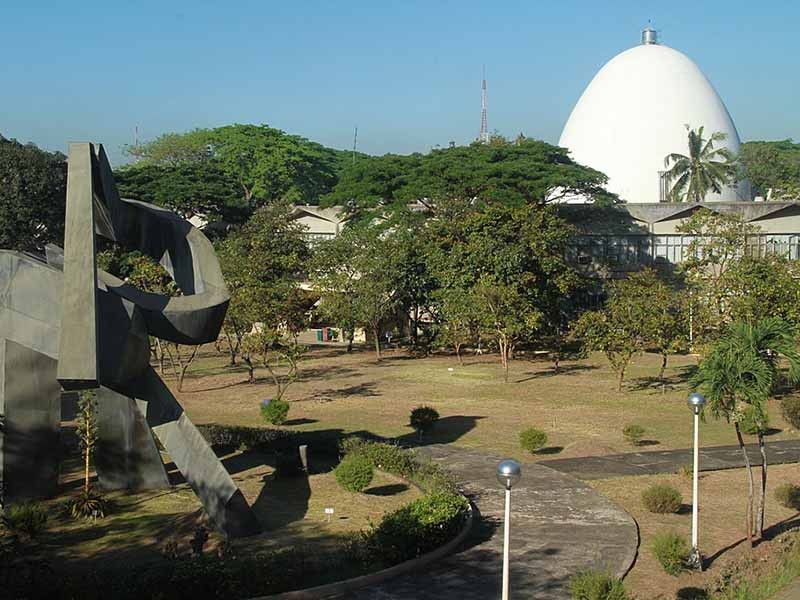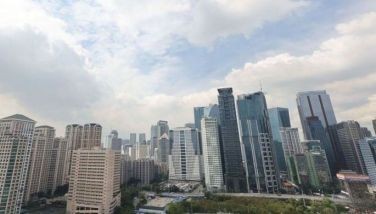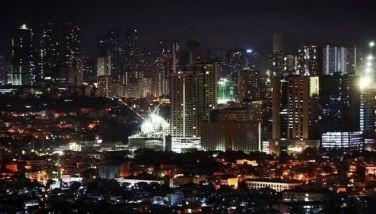It's too late for Duterte's nuclear energy push as term nears end

MANILA, Philippines — There is not enough time for President Rodrigo Duterte to accomplish something that would turn his nuclear energy ambitions into reality as he enters the final months of his term, leaving the fate of the plan to his successor who might adopt or reverse the new energy policy.
Under the Executive Order (EO) 164 released Thursday, the state will work towards introducing nuclear in the country's power mix and develop a nuclear program for it. In the order, Duterte described nuclear as a viable alternative which will address the projected decline of coal-fired power plants, and can help reduce carbon emissions.
The EO was signed more than a year after an inter-agency body submitted its recommendations.
"President Duterte's nuclear policy comes a little too late to achieve real strides not only in energy security but in other aspects of nuclear technology," Terry Ridon, convernor at public policy think tank Infrawatch PH, told Philstar.com over email on Thursday.
"With less than three months to the end of his term, the public cannot expect any new agreements nor projects to emerge as a result of this executive order," he said.
According to Ridon, it is up to the newly-elected President to determine whether or not nuclear energy will be included in the future energy mix.
In determining nuclear power’s potential, the new administration should compare its cost with other existing technologies, as well as its environmental impact and the country's emissions commitment under the Paris agreement, he said.
"If costs are comparable to other technology, then nuclear might not be viable. If it will be built in areas that might severely impact communities and biodiversity, then it might be unviable. These are real considerations which the next government will need to decide," he added.
'Next gov't has choice to pursue nuclear'
The decision to pursue a national nuclear energy program will lie in the hands of the next administrations, Department of Energy (DOE) Undersecretary Gerardo Erguiza said in an online briefing on Thursday.
In the past, a previous administration wanted to adopt a nuclear program but there was no clear policy which was issued, he said.
"This executive order actually is the policy. That's the starting point of the nuclear power program... Every administration that would come in could consider it and they don't have to put up a policy anymore," Erguiza said.
It usually takes up to six years, equivalent to the full term of a President, to craft such policy, the DOE official added.
Several groups, however, believe that the presence of a national nuclear energy program may do more harm than good.
'Revoke the EO'
Greenpeace Philippines demanded the Duterte administration to revoke EO 164, adding that the policy is "not aligned with the interests of the Filipino people."
"The signing of this EO and Sec Cusi’s continued peddling of the interests of the nuclear industry is a blatant disregard of the people’s call for a concrete, sustainable, and safe solution to the energy crisis through renewable energy (RE)," Greenpeace Campaigner Khevin Yu said in a statement sent to reporters over email.
He described nuclear energy as the "most dangerous and most expensive source of electricity" which is the last thing that Filipinos need at a time when the country is deep in debt.
"The next administration will already inherit a huge debt burden and the pursuit of nuclear will make this even heavier due to steep capital costs for construction, operation of nuclear plants, enormous costs of radioactive fuel storage, and costs for managing a nuclear incident that can reach billions of dollars, as well as price volatility as almost all sources of uranium are in conflict areas," Yu said.
Local think tank Center for Energy, Ecology and Development (CEED) said it makes no sense to entertain a solution which will put the lives of Filipinos at risk.
"The entry of nuclear facilities and our vulnerability to calamities and disasters can easily lead to accidents that will turn the Philippines into the next Chernobyl," Gerry Arances, Executive Director of CEED, told Philstar.com over email.
But DOE’s Erguiza disagreed with Arances. "I would say that nuclear power plant [technology] is almost perfected and the previous accidents that came out from time to time are already things of the past. They were already corrected. As a matter of fact...the one in Fukushima [is a] first generation power plant. Right now, we are using the third or fourth generation plants."
Fuel for nuclear energy, such as plutonium and uranium, can be neither sourced locally so the country will have get its supply from other countries.
"[The] price of fuel for nuclear energy like plutonium and uranium, neither of which can be sourced domestically, is bound to rise. It’s not wise to turn our energy sector more vulnerable than it already is to global shocks when we have an abundant supply of RE just waiting to be developed," Arances said.
"The only positive aspect of this EO is that it is a clear admission from President Duterte that decades of coal and other fossil fuels did not bring us energy security," he added.
'Inconsistent with DOE's modernization thrust'
Manila-based climate and energy policy group Institute for Climate and Sustainable Cities (ICSC) said nuclear is inconsistent with the Energy department's goals to modernize the power sector.
"It will only compound fundamental problems of a grid more fit for the 70s. Pushing for a technology that is 50 years too late is the opposite of modernization," ICSC Executive Director Red Constantino told Philstar.com over email.
He said the country should, instead focus on establishing a power sector which relies more on flexible and distributed generation, with the help of RE projects.
"The Philippines has an abundance of variable reliable power in the form of wind, solar, biomass, geothermal and hydro resources that remain untapped - including the irreversible rise of storage options," Constantino said.
For him, nuclear energy will be "massive economic burden" to the Filipino people, citing the cost overruns and huge subsidies required in putting up nuclear projects.
DOE Secretary Alfonso Cusi has been a vocal supporter of nuclear energy, calling it "really safe" and believing that it can help the country achieve energy security.
- Latest
- Trending
































